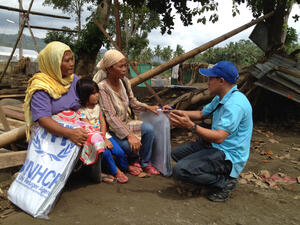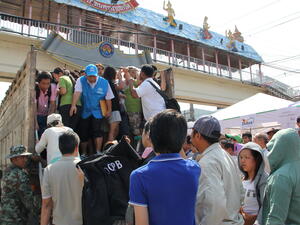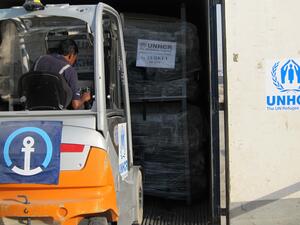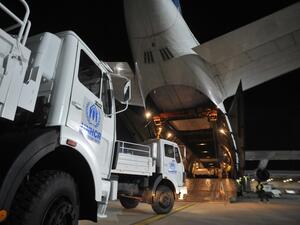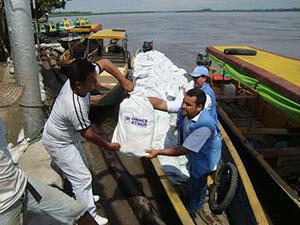UNHCR sending emergency team, supplies to Timor-Leste
UNHCR sending emergency team, supplies to Timor-Leste

Violence and looting in Timor-Leste have forced tens of thousands flee their homes in search of safety. Some 30 spontaneous encampments have sprung up around the capital of Dili, but living conditions are often squalid.
GENEVA, May 31 (UNHCR) - The UN refugee agency is sending an emergency team and urgently needed supplies to Timor-Leste to help tens of thousands of people displaced by the current violence.
"The support of the international community and the UN in allowing East Timor to become an independent country was extremely important," said UN High Commissioner for Refugees António Guterres on Wednesday. "So, when we see this difficult moment with the East Timorese suffering problems of insecurity and displacement, it is important the international community helps out."
Timor-Leste President Xanana Gusmão and the UN Secretary-General's Special Representative in the country both requested UNHCR's help in alleviating the plight of the displaced.
In a phased response to the crisis and as part of a joint UN effort, UNHCR will intially deploy an emergency team and will mount an airlift of tents, plastic sheeting and non-food items for up to 30,000 people from its stockpiles. Other aid agencies are also sending supplies for the displaced.
A UNHCR assessment team arrived in the East Timorese capital, Dili, on Tuesday. The team reported that the most critical humanitarian needs of the town's estimated 65,000 displaced - apart from security - were food, clean water and shelter. A further 35,000 people have reportedly fled to the countryside for safety.
"Dili appears to be a ghost town in many areas with people either having fled to join extended families in their original districts or having crowded together for safety in spontaneous IDP camps located close to UN compounds or international forces," said UNHCR's regional representative in Jakarta who headed the assessment mission to Dili.
The refugee agency will use its reserves to intially fund the airlift, purchase of non-food supplies and emergency team deployment at an estimated cost of US$3.7 million. But these funds will need to be replenished rapidly and further funding may be required, depending on the evolution of the situation.
Details of the airlift, which will first deliver family-sized light-weight emergency tents, plastic sheeting for shelter and jerry cans, followed by blankets, cooking sets and mosquito nets are still being worked out.
An emergency response team, including site planners and logistics, protection and coordination personnel, is scheduled to deploy over the weekend.
The Timor-Leste authorities are considering allocating sites where camps for the displaced can be set up. It is envisaged that people now crowded in some 30 spontaneous sites will move to the new camps once they are established.
"There is a clear need to get people out of these overcrowded and unsanitary makeshift camps and into new sites which are designed in such a way as to protect women, children, and the elderly," said UNHCR's Gregory Garras who will lead the agency's operations in Dili until the emergency team arrives.
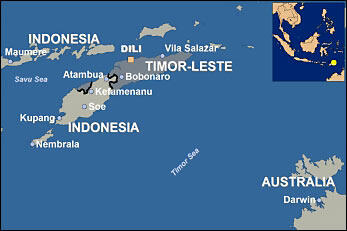
UNHCR has a history of involvement in the region, repatriating more than 220,000 East Timorese refugees who had fled the violence and upheaval surrounding the August 1999 UN-organised referendum on independence from Indonesia. The refugee agency also assisted some 28,000 people who wanted to stay in Indonesia to confirm their Indonesian nationality.
In December 2005, UNHCR wound-up its humanitarian operations in West Timor, ending six years of work in the region. UNHCR now has a limited presence in Timor-Leste.
Guterres, in his former role as Portuguese prime minister, was directly involved in the negotiations with the Indonesian government over East Timor's independence.

